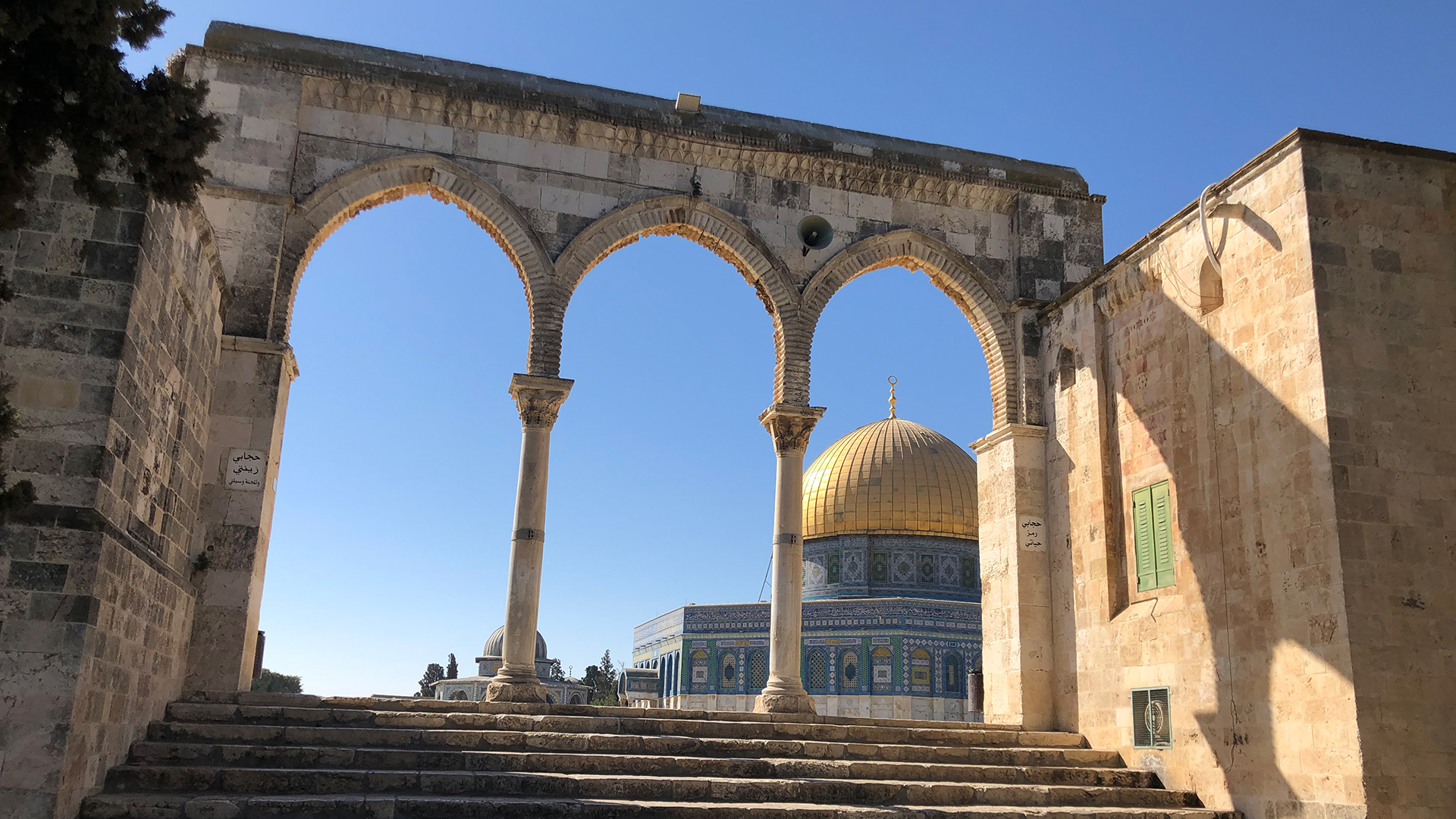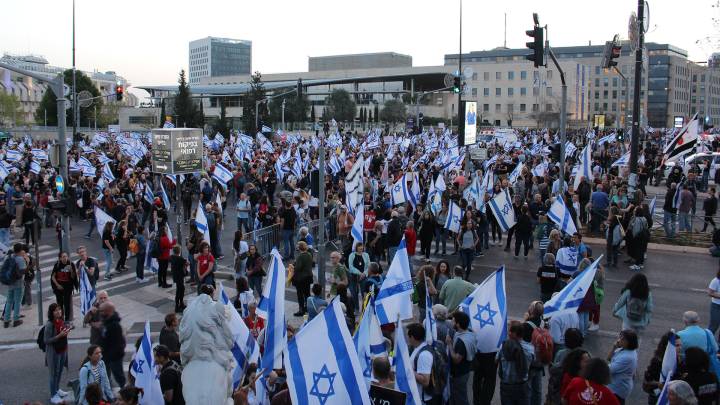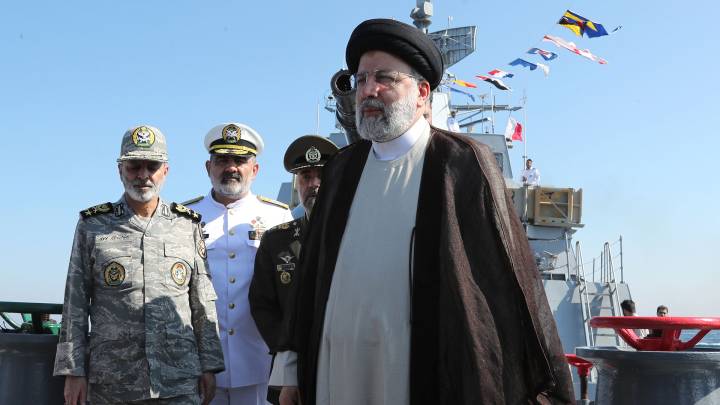Hassan Nasrallah’s supple speech on Gaza is no reason to sound the all-clear. If violence spills over to the West Bank and Jerusalem, an all-out war would be hard to contain.
Since the massacre committed by Hamas and its allied forces from the Gaza strip on October 7, 2023, we hear warnings of regional “conflagration” from politicians, pundits and others dealing with the Middle East. Often, the term is no more than a set phrase with little context provided on how exactly such a fateful chain reaction would unfold.
Some observers generally outline the Middle East conflagration as follows: from their home bases in Lebanon and, recently, Syria, Hizbullah would engage Israel in a two-front war, in order to save Hamas from annihilation. This would trigger Israeli attacks on Hizbullah and the infrastructure of the whole of Lebanon, probably also on Iranian-controlled units in Syria, which in turn prompts Iran to attack Israel and, potentially, US assets in the Gulf.
Last Friday’s eagerly awaited speech by Hizbullah leader Hassan Nasrallah is now being interpreted in a rather comforting way by Western analysts: He and his Iranian sponsors, so it seems, do no display great appetite at present to be drawn into a regional, costly war by Hamas. Nasrallah may have praised Hamas and its allies in the Gaza Strip and given them the sole credit for the attack on October 7. But in his language this can also mean: Please don't hold us accountable for what Hamas alone has done!
Nevertheless, there is no reason to sound the all-clear, for the greatest danger of escalation lies probably neither in Gaza nor in Lebanon, but in and around Jerusalem. If, as would be a realistic scenario, all-out war were to spread to the occupied West Bank and, in particular, the area surrounding the Noble Sanctuary of Al-Aqsa, Nasrallah’s Hizbullah would have little choice but to join the battle. The protection and liberation –as he says– of Jerusalem from the “Zionist yoke” has become the raison d'être of his organization, in particular since Israel practically pulled out of Lebanon almost 25 years ago. The fact that, this time, Jerusalem did not feature among Nasrallah’s most prominent talking points, should not mislead the ear of the observer. Anyone who believes that Hizbullah’s attachment to Jerusalem is only rhetoric or symbolism risks being blindsided.
Instead of allaying fears, hardly a day has gone by without right-wing Israeli politicians adding fuel to the fire
The Arab world may be outraged by Israel’s war on Gaza. However the more political minds understand that the situation in the strip is complicated and that Hamas bears a great deal of responsibility for what is happening there. But when it comes to Jerusalem, whoever fights settler colonialism, annexation, and the much-feared destruction of Palestine’s Islamic identity can count on support from across the Arab political divide. That includes Hizbullah who, otherwise, are rather unpopular in most Middle Eastern countries.
The risk of conflagration has grown incrementally, long before and more rapidly since October 7. For years, but especially since the Netanyahu government with it’s messianic and extremist coalition partners was sworn in, Palestinians have been convinced that the bloody end is a foregone conclusion: Israel, many believe, is about to annex all Occupied Territories, kill or expel the Palestinians and, eventually, demolish the Islamic holy site, the Haram al-Sharif, to turn it into a Jewish place of worship. What the government does not want to do itself, it leaves to Jewish extremists, they hear.
Instead of allaying such fears, hardly a day has gone by without right-wing Israeli politicians, including high-ranking cabinet members, adding fuel to the fire. Marauding settler militias attacked Palestinian villages, under the watchful eyes of Israeli forces, some of which are already successfully infiltrated by the extreme right. The cutting down of centuries-old olive trees–a symbol of the Palestinian economy and culture– and burning of homes went on with impunity. The West Bank is not controlled by Hamas. However, Palestinian guerilla groups there have stored lethal weapons and are not expected to stand idly by. Instead of seeking de-escalation, members of the Israeli government fanned the flames. Some openly fantasize about the annihilation of the Palestinians on their social media accounts. One suggested giving the victorious Israeli conquerors of Gaza the land from which they expelled the Palestinians as a reward.
Prime Minister Netanyahu’s recent biblical reference to “Amalek”, a legendary bronze-age people and nemesis of the tribes of Israel that the latter exterminated at God’s behest, was not exactly proof of his intention to a proportionate response.
Even in Egypt, the question of whether the 1979 agreement is still valid, is once again being discussed in an astonishingly candid way
Even in Egypt with its 1979 peace treaty with Israel, the question of whether this agreement is actually still valid is once again being discussed in an astonishingly candid way. Should Israel expel thousands of Palestinians to the Sinai and thus de facto violate the promise made at the time to respect the borders of its neighbour, what would Egypt do? Not to mention Jordan, with its large Palestinian population, where the crisis could seriously destabilize Hashemite rule.
Whereas major parts of the Arab world regret the unfolding of recent events, even some of the rather pragmatic Gulf monarchies seem to see some benefits in Israel and its enemies going to war. A messianic, extremist leadership in Israel is as much an obstacle to Saudi plans of reshuffling and restructuring the region, as are Hamas and Hizbullah. With the latter crippled in the war, and at the same time, Israel suffering major losses, a post-1973 Yom Kippur War scenario could arise. With all sides forced to compromise in the end. So war remains a misfortune, but also a political option, specially for those who would not have gone to war themselves.
If the Israeli government gives the Arab world another reason to believe that it really wants to destroy the Palestinian and Islamic identity of Jerusalem forever, there will be no incentives for the Arabs to contain a regional conflagration. Much depends therefore on the behaviour of conflict parties in Jerusalem and the West Bank.
If Israeli security forces allow extremist groups and settler militias to attack Palestinian villages or –as even Israeli intelligence have repeatedly warned– stage an attack against Al-Aqsa, the gate to hell would be open a little wider. Netanyahu must, if he still can, contain the extremists in his own ranks and shut up the worst provocateurs in his cabinet. Jerusalem and the West Bank yield an even greater potential than Gaza to drag the region into a major war.




